Topics
Our research areas cover a wide range of disciplines from military strategy and defence through to cyber security and financial crime.
Climate, Energy and Environmental Security
We cover energy and environmental security, wildlife crime, illegal fishing, corruption and illicit finance as well as the implications of climate change through geopolitical, defence and security lenses.
Cyber Security
We examine the scale and methods of cybercrime explore ways to mitigate the risks from cyberattacks and build cyber-resilient societies.
Defence Industries
We analyse defence management practices undertaken by the UK Ministry of Defence, including defence spending and consider how ideas, rules and arrangements shape governmental defence relations with private sector suppliers.
Financial Crime and Security
Topics in this category provide a deep dive exploration of money-laundering, fraud, illicit trade and trafficking and illicit financial flows.
International Security and Diplomacy
We explore the foreign and security policies and the internal politics of leading states and look at the impact this has from a global perspective and on the UK as an international actor.
Military Domains and Strategy
We look at how land forces train and fight in contemporary conflict, the evolution of air operations, and developments in missile defence, C4IRS, sea power, and space policy.
Military History
Understanding how the military instrument of power has been used is a core part of RUSI’s mission and legacy with profound lessons and implications for today’s decisions and tomorrow’s policies.
Nuclear Programmes and Weapons of Mass Destruction
We focus on Iranian and North Korean nuclear programmes, chemical and biological threats and WMD issues around the world.
Open Source Intelligence, AI and Disruptive Technologies
We analyse open source and geospatial intelligence and explore applications of AI, technology procurement, and cyber.
Organised Crime and Law Enforcement
Topics in this category look at organised crime, corruption, illicit trade and trafficking and how the law can be enforced and policed.
Sanctions and Proliferation Financing
We focus on the design and implementation of sanctions, identifying measure to prevent sanctions evasion and proliferation financing.
Terrorism and Violent Extremism
We explore methods of countering terrorism, terrorist financing and violent extremism, as well as looking at developments in technology, surveillance and intelligence and what this means for national security.
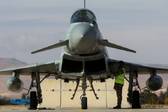
We review and assess the use of air power by both allied and adversary states in conflicts and deterrence around the world.

RUSI’s research aims to improve the effectiveness and efficiency of the global anti-money laundering regime in an evolving financial crime landscape.

We examine the opportunities and risks presented by artificial intelligence (AI) for national security and prosperity, consider how to gain strategic advantage in the context of rapid technological change and heightened geopolitical tensions, and identify success while managing AI’s many risks and uncertainties.

Our research analyses how battlefield data is collected, processed and disseminated – especially the emerging technology enabling and revolutionising these processes.

RUSI’s research addresses climate change as the backdrop to all national security, defence and foreign policy discourses.

RUSI’s work offers detailed conflict analysis set against different contexts, and examines conflict prevention, resolution and longer-term recovery.

Our work addresses the diverse and global nature of threats with research, programming and policy recommendations.

RUSI’s research explores ways to mitigate the risks from cyber attacks and build cyber-resilient societies.

We examine the most pressing strategic challenges related to cyber policy and strategy.

We examine the scale and impact of ransomware and other cybercrimes on national security and prosperity.

We consider how the ideas, rules and arrangements that shape governmental defence relations with private sector suppliers challenge all governments.

We analyse defence management practices undertaken by the UK Ministry of Defence, including defence spending and the economic impact of defence expenditure.

We focus on the high-level questions of defence strategy, including the structures, processes and people that deliver defence outputs across the enterprise.

RUSI examines significant issues related to EU foreign and security policy, focusing on the developing relationship with the UK, the war in Ukraine, and other regional conflicts.
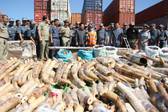
Our cutting-edge global research on environmental crime focuses on environmental security, wildlife crime, illegal fishing, corruption and illicit finance.

Our research focuses on the threat of fraud as it relates to money laundering, cybercrime and international security.

We provide in-depth analysis of gender dynamics in foreign and security policy, including a focus on stabilisation, military response, counter-terrorism, and financial and cyber security.
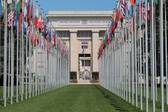
We focus on the military and diplomatic measures taken by nations and international organisations, such as NATO and the United Nations, to ensure mutual safety and security.
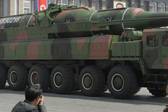
Our research focuses on regional affairs associated with the proliferation of nuclear, chemical and biological weapons; countering proliferation finance; and broader issues of deterrence, disarmament and arms control.

Global illicit flows take diverse forms that are frequently interlinked, driven by organised crime and able to generate substantial proceeds, posing a significant threat to international security.
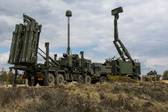
RUSI focuses on the strategic considerations surrounding the contribution of integrated air and missile defence (IAMD) to deterrence, as well as on more tactical issues such as the delivery of integrated command and control.

The RUSI Land Warfare team conducts extensive fieldwork to study contemporary conflicts and to evaluate the impact of emerging military concepts, doctrine and technologies on the future battlefield.

Understanding how the military instrument of power has been used is a core part of RUSI’s mission and legacy with profound lessons and implications for today’s decisions and tomorrow’s policies.
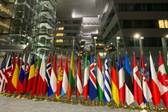
Alliances are a critical part of the Western way of war and an enduring source of strength. Our research examines the detail behind alliances’ success or failure.

We focus on the challenges facing law-enforcement agencies in the 21st century and the opportunities that exist to overcome them.
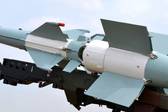
Proliferators of weapons of mass destruction, such as North Korea and Iran, fund their programmes through illicit means, evading international sanctions in the process.

Resilience looks at how our political, military, and societal preparations make us a less attractive target for adversaries – a wider contribution to deterrence for a modern era.

We examine the complex challenges surrounding the design and implementation of sanctions and identify both public and private sector-based solutions and areas for collaboration.

We consider the impact on defence and security policy if Scotland were to vote for independence.

Our research assesses the strategic and operational trends that will dictate how navies fight, and what their role is.

We analyse UK and international space policy, the military aspects of space power and what the future of space conflict will look like.

RUSI’s research spans areas such as the intersection between technology and geopolitics, ethical and legal applications of AI, technology procurement, FinTech and cyber.

We examine the evolving global counterterrorist financing landscape and seek to develop appropriate and relevant responses to the threat of terrorist financing.

RUSI analyses today’s critical UK foreign policy issues, including the impact of Brexit, the response to Russia and China, and the Asian Pivot.

Contributing to the debate on the 2021 Integrated Review of Security, Defence, Foreign Policy and Development (IR), and its successor the March 2023 Integrated Review Refresh

